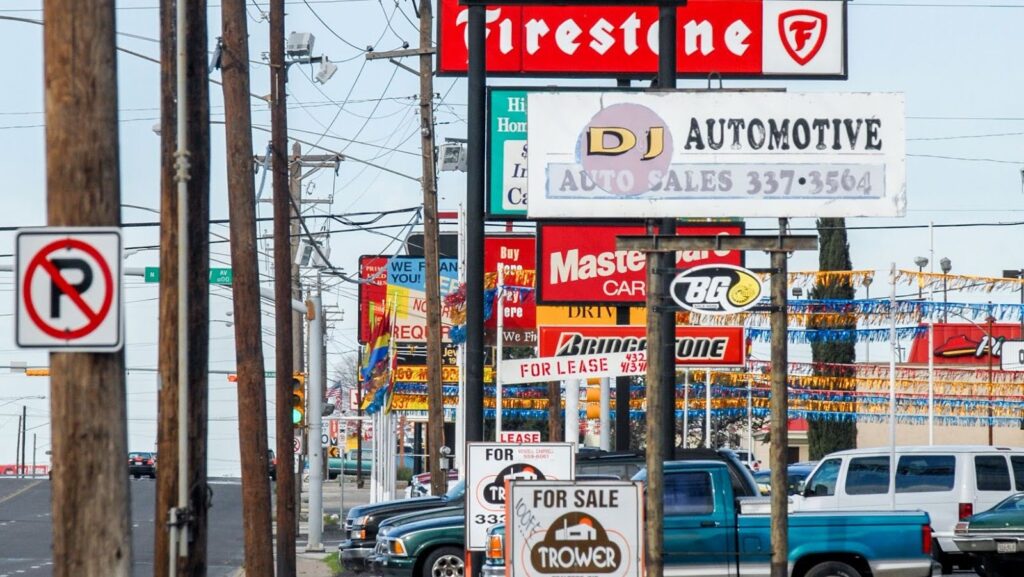Starting a new business is an exciting adventure, but it’s also a challenge. One of the biggest hurdles you’ll face is attracting local traffic. But don’t worry, I’ve got you covered. In this article, I’ll share nine proven tips to help you draw in local customers and give your startup the boost it needs.
Whether you’re running a brick-and-mortar store or an online business, these strategies will help you connect with your community, build your brand, and kickstart your local customer base. So, ready to get your startup buzzing with local traffic? Let’s dive in.
Understanding the Importance of Local Traffic
Local traffic forms the lifeline for a budding startup, providing an initial customer base and helping establish a strong regional presence. In this section, we’ll discuss the value of local customers and the significant advantages your startup can gain from focusing on its local market.
Why Local Customers Matter for Your Startup
Local customers play a crucial role in the growth trajectory of a startup. Primarily, they serve as the first set of users for your products or services. They’re likely to provide rapid, often brutally honest, feedback, facilitating necessary tweaks and improvements. Additionally, local customers create opportunities for word-of-mouth marketing. For example, if you offer unique products like metal church signs, make sure to include these specific keywords to target local customers searching for these items. Plus, local inhabitants generally prefer supporting nearby businesses, fostering a sense of community solidarity.
Benefits of Targeting Local Market
Focusing on the local market offers unique advantages. Startups can build strong, personal relationships with their customer base, leading to higher customer retention rates. There’s nothing quite like the loyalty that comes from being known and appreciated as a local business. Furthermore, targeting a local market tends to be more cost-effective. Marketing campaigns can be more focused, and distribution costs are typically lower as the geographical distance between the business and its customers is reduced. Efficiency improves while costs decrease, generating a winning scenario for startups.
Tip 1: Optimize Your Website for Local SEO
Local search engine optimization (SEO) is essential for attracting local traffic. Attracting local traffic strongly hinges on the process of optimizing your startup’s website for local SEO. It’s essentially about making your online presence more visible and accessible for prospects in your area.
Incorporating Local Keywords
The first step in the local SEO journey involves weaving local keywords into your website’s copy. These are phrases that folks in your area likely use when searching for your products or services. Picture this: If I run a vintage clothing store in Boston, high-converting local keywords might include phrases like “Boston vintage clothing,” or “retro fashion Boston”. By using these local keywords, I improve the chances of Boston-based fashion enthusiasts finding my website when they search these phrases.
Importance of Local Backlinks
Backlinks, notably local ones, play a vital role in local SEO success. Here’s why: If a respected local food blog links to my Boston-based bakery’s website, it reinforces my site’s relevance and authority in the context of Boston’s culinary scene. Similarly, if my bakery gets a backlink from a popular Boston event planner, that’s another quality local backlink adding more neighborhood credibility. The more local backlinks I have from authoritative sources, the more likely Google is to recognize and reward my site’s local focus.
Tip 2: Leverage Local Business Listings
Local business listings amplify visibility. They’re focal points in grabbing the attention of the local audience. Here, we dive into the impact of Google My Business and other local directories such as Yelp.
Google My Business
Google My Business – it’s a powerful platform for startups. By listing your business here, you get a spot in Google’s search results and maps. It’s free and straightforward to set up. Add precise info about your business, like its address, contact numbers, operating hours, and website link. Another effective way to enhance your visibility is by utilizing the benefits of vanity numbers. These custom phone numbers not only make your business easier to remember but also strengthen your branding efforts, making it more likely that local customers will choose your services. Make sure to update it regularly and add high-quality images for better engagement.

Remember, Google prioritizes locally relevant information. Therefore, a well-optimized Google My Business page increases your chances of appearing in local searches. Google users can also review your services. High-rated businesses usually outshine others. Respond to these reviews promptly, whether they’re positive or negative, for a stellar online reputation.
Yelp and Other Local Directories
Don’t limit your listings to Google. Utilize Yelp, LinkedIn, Bing Places, and other local business directories. Like Google, these platforms help your business become more noticeable to local online users.
Yelp, for example, gets millions of visits from people looking for services. By listing on Yelp, you’re putting your business in front of a massive crowd. Include details like on Google My Business. Encourage customers to leave reviews and ensure you’re responsive. Similar to Google My Business, the more positive reviews you get, the more visible your business becomes in the platform’s results.
Expanding your presence on these platforms, you’re not only raising awareness for your startup, but you’re also building your local reputation. It’s a solid strategy for attracting local traffic.
Tip 3: Engage in Local Community Events
Next, let’s delve into the third tip: engaging in local community events. This strategic tip not only boosts your startup’s local visibility but also fosters stronger community relationships.
Sponsorships and Partnerships
Involvement in sponsorships and partnerships forms a key part of local engagement. I suggest exploring local events, fairs, or festivals that align with your startup’s values or target demographics. For example, if your startup focuses on sustainable energy, partnering with or sponsoring a local Earth Day event proves beneficial. This exposure can help increase brand awareness, highlighting your commitment to local interests and helping create positive associations in the minds of potential customers.
Hosting or Participating in Events
Hosting or participating in local events offers another excellent opportunity for interaction with potential local clients. For instance, hosting a workshop can position your startup as an authority in your field. Similarly, by participating in local community events, you’re showing the community that you’re not just a faceless entity but an active and supportive member. While these opportunities require investment, both in time and resources, the return in terms of visibility, customer relations, and potential sales markedly offsets the upfront cost. Don’t underestimate the power of making personal connections in boosting local traffic.
Tip 4: Utilize Social Media to Target Local Audiences
Let’s tap into the power of social media platforms to target local audiences and drive local traffic to our startup. Email marketing remains a powerful tool for engaging with local customers. It’s crucial that we understand the significance of platforms such as Facebook, Instagram, Twitter, and LinkedIn to build relationships with our audience, share our company’s story, and interact with potential customers.
Geo-targeted Ads
Not all ads yield the same results. For our startup, we’ll find the most relevant customers with geo-targeted ads. These ads allow us to narrow our audience based on their geographic location. By limiting our ad’s reach to people within a specific area, we can ensure our ad spends directly impact the local community we’re targeting. We can make use of platforms like Facebook and Google, which provide useful tools for businesses to create, distribute, and manage geo-targeted advertisements.
Engaging with Local Influencers
Working with local influencers is an underused, yet incredibly effective method used to build a strong local presence. These influencers serve as catalysts, shining a spotlight on our brand within our local community. We can identify influencers in our industry with a large, engaged local following, and partner with them to promote our brand.

They don’t necessarily have to have a massive following, as long as they’ve established a genuine connection with their audience. Collaborations could take the form of sponsored posts, takeovers, or even events hosted at our business premises. A partnership with a trusted influencer can lead to an influx of local followers, customers, and so, more local traffic to our new startup.
Tip 5: Create Locally Relevant Content
Offering locally relevant content is key to engaging your local customer base. It strengthens the bond between your startup and the community you serve.
Blog Posts on Local Issues
Writing blogs about local issues can reel in a lot of local traffic. Discuss hot topics, recent news, events or concerns specific to your locale. For instance, if your startup operates in San Francisco, a blog post addressing the city’s housing crisis, local festivals, or recycling initiatives can attract local readers interested in these issues. They’ll see you not only as a brand but also as an entity closely connected to their everyday lives.
Guides and How-tos for Local Customers
Producing ‘how-to’ guides and tutorials specifically for your local customers can prove beneficial. Explore the common problems or gaps that your local customers face. Then showcase how your product or service can fill these gaps, solve their issues, or simply make their lives better. For example, mention how your food delivery service outsmarts the city’s heavy traffic during lunchtime. Or, highlight how your home cleaning service uses eco-friendly products that align with your city’s sustainability efforts. Establishing this local relevance within your content can encourage local customers to engage with your startup, empathize with your brand, and ultimately, drive more local traffic your way.
Tip 6: Offer Special Promotions and Discounts
Keep local customer loyalty strong by extending special offers. There’s nothing like a good deal to prompt local interest and traffic.
Exclusive Deals for Local Residents
I can’t stress the power of exclusivity enough. Tailoring deals solely for the community fosters growth in local web traffic. Imagine offering a ‘10% off for residents of [your city]’ promotion. It invites locals only and shows them the startup’s dedicated interest in their patronage. Exclusive deals not only stimulate traffic but also solidify connections between the startup and the community.
Seasonal Local Offers
Seizing the opportunity afforded by seasons or local festivals works wonders. By initiating specific seasonal promotions tied to local events, my startup could resonate with the local populace’s cultural pulse. Think along the lines of a ‘20% discount during the [local festival]’ offer, capitalizing on local customs. Such targeted offers inevitably lead to a surge in local traffic, making it a nifty tactic to consider right alongside the others.
Tip 7: Implement a Referral Program
Referral programs can be paramount for generating local traffic. Instituting this strategy bolsters our startup’s credibility and trustworthiness.
Encouraging Word-of-Mouth
Word-of-mouth is among the most potent advertising tools a startup possesses. Harness this by fostering an environment where clients feel enthusiastic about recommending our services or products. The introduction of referral codes or personalized discount links is one tactic. It simplifies the recommendation process for current consumers and provides an appealing incentive for potential local customers to visit.
Rewards for Local Referrals
Equally essential is the structure of rewards for local referrals. Augmenting local consumers’ involvement via referral compensation fosters not only business growth, but also community connection. Rewards often take shape as discounts on future purchases, but can also include unique promotional merchandise signifying our brand’s local presence. By incentivizing local referrals, we’re not simply attracting more customers; we’re fostering stronger community relationships and fortifying the local brand image of our startup.
Tip 8: Network with Other Local Businesses
Let’s dive into the importance of building relationships with other local businesses. Interlinking your startup with local entrepreneurship gives your business a unique vantage point to leverage shared resources and customers.
Cross-promotions and Collaborations
Cross-promoting businesses have proven as an effective strategy. It’s a win-win approach, driving customers from one local business to another. For example, a newly opened bakery could partner with a popular coffee shop in town for cross-promotions. With combined efforts, the bakery introduces its pastries to coffee shop customers, and in turn, the coffee shop gets a new line of pastries. It’s a beneficial exchange that amplifies local visibility and customer interaction.
Joining Local Business Groups
Involving your startup in local business groups can serve as a potent channel for attracting local traffic. Local business associations, chambers of commerce, or even specific industry-related groups are typically active in promoting member businesses. Membership in these groups often provides opportunities for posting about your startup in their media outlets, participating in events, and using networking sessions to spread the word about your products or services. For instance, a tech startup joining a local IT business group can take part in discussions, roundtables, and conferences, consequently amplifying the startup’s visibility within the local business community. This scales up the potential to attract more local traffic.
Tip 9: Collect and Showcase Local Reviews
As we navigate further into the strategies, I’d unfolded previously, the final step, Tip 9, comes into play – collecting and showcasing local reviews. It’s a precious tool for attracting local traffic to a startup, being a remarkable form of social proof.
Importance of Positive Local Feedback
Positive local reviews serve as credibility markers and also as potent influencing agents. They act as testimonies from local customers who’ve engaged with the brand. According to BrightLocal’s Local Consumer Review Survey (2019), 82% of consumers read online reviews for local businesses. Moreover, 52% of 18-54 year-olds claimed they ‘always’ read reviews. This data underscores the undeniable influence of local feedback.
How to Encourage Customers to Leave Reviews
Firstly, prompt service encourages customers to share their experience. It’s crucial to make review submission as convenient as possible. For instance, including a direct link in follow-up emails after a service or purchase could facilitate this.
Additionally, incentivizing customers can also prove beneficial. Offering discounts or loyalty points for honest reviews encourages customers to participate actively. However, ensure that the reviews generated aren’t biased by this method.
Thirdly, responding to existing testimonials could also spike participation. Whether feedback received is a compliment or critique, acknowledging it displays customer importance, potentially prompting more reviews.
Finally, partnering with review platforms popular in your local area can be a smart move. It offers an easy-to-find arena for customers wishing to share their experiences with your business, increasing the likelihood of gaining local traffic.
Conclusion
So we’ve journeyed through nine solid tips to attract local traffic to your fresh startup. It’s clear that community connections, social media, influencers, and local content all play pivotal roles in this process. Never underestimate the power of promotions, referral programs, and networking with local businesses. But let’s not forget the value of Tip 9 – local reviews. They’re not just testimonials; they’re social proof that can significantly influence consumer behavior. So go ahead, encourage your customers to leave reviews, respond to them, and consider partnering with local review platforms. The road to success might be challenging, but with these tips in your arsenal, you’re well on your way to making your startup the talk of the town.

